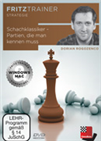FIDE Chess for Protection project Curriculum

One of the essential parts of the Chess for Protection project is Girls Club, aiming to educate girls and women. The pilot by FIDE and UNCHR was launched in Kakuma, Kenya, in 2021 and continues running in 2022. Within the project, girls not only learn chess but also read and discuss books, improve various skills and achieve personal goals.
As part of the FIDE Girls Club initiative, WGM Anastasiya Karlovich, WFM, IA Shohreh Bayat and WFM Martina Skogvall created a Curriculum that will be used to teach chess in refugee camps. The program was reviewed by another experienced chess trainer, WIM Natalija Popova.
"We’re thankful to the European Chess Union for supporting the implementation of this project. We believe it is an essential step to scale the Chess for Protection project to a larger audience." states the FIDE press release.
“The idea of the project “Chess for Protection” (Chess for refugees) came to my mind a long time ago,” shared Project leader WIM Anastasia Sorokina. “I have always been concerned for people living in and recovering from stressful situations. It is vitally important to keep their mind busy. Chess is one of the options to help such people to get out of stress and enter the wonderful world of this beautiful game.”
You can find the complete press release on the ECU Website:
When in doubt, who do you ask?

So, what happens when an arbiter faces a situation where they need to make a decision or reply to a question to clarify regulations?
If the arbiter is well-rounded, keeps up with the regulations or has faced a similar case in the past, it is quite easy to handle it. On the other hand, when it comes to less experienced arbiters (no shame there, we've all been through it!), it usually comes down to two scenarios: a) they ask a more experienced arbiter or b) they check the regulations to find the answer by themselves.
 As the author explains in the introductory video, knowing the classic games from the past enriches your chess understanding in general, and helps to improve the level of your own games.
As the author explains in the introductory video, knowing the classic games from the past enriches your chess understanding in general, and helps to improve the level of your own games.In my experience, the most common scenario is (a), ask someone else, get an answer, solve the matter quickly. (Spoiler alert: the more experienced arbiter usually checks the regulations before replying...)
Scenario (b) is much more rare to occur. I find that less experienced arbiters are a little intimidated by the regulations, have no idea where to start looking or have convinced themselves that they would not understand the text, even if they tried, so they just choose the easier option (scenario (a)). It is a pity, because we are talking about the same regulations that they were taught in the Arbiters' Seminars they have already attended (Important note here: one seminar is never enough. Make it a habit to attend a seminar once a year to freshen your memory and hear interesting incidents from actual events).
True, it is one thing to discuss selected part of the regulations with a lecturer's guidance and another to search the whole handbook to find what you need.
However, the FIDE Handbook is not as “chaotic” as some arbiters may feel. It is very well structured in various sections and, after spending a little time with the table of contents, it will be a lot easier to know where to look. Another indispensable tool is the Arbiters' Manual, where you will find literally anything an arbiter may need, plus bonus explanations to clarify obscure points. Both documents are updated following changes in regulations. This can be done at any moment and there is usually a time reference, indicating which regulation is in effect during which period (most times the old regulations are still there bearing the time reference that makes them no longer valid).
Certainly, there is always room for improvement. I am not arguing that the format is the best possible, nor that it cannot be optimised. What I would like to see, for example, in the near future, is a table of the specific changes that were announced for every part of the regulations, not just the new document. Arbiters cannot be expected to go through the documents by themselves to see if they can identify the differences...
What would be even more helpful would be that these changes were presented in a clear way on the relevant FIDE Commission's website (Rules, Qualification, Pairings, Fair Play) and gathered all together on the FIDE Arbiters' Commission website, considering they all affect arbiters in their every day work.
To sum up, I'm not advocating in favour of asking colleagues or checking the regulations. I am favouring of doing both, provided that any arbiter of any level of experience would be able to check the regulations by themselves and confirm with other arbiters their understanding of them.
And remember: The ECU Arbiters' Council is always willing to answer your questions, doubts, requests to clarify regulations, opinions on any matter that you may wish to discuss. Feel free to email us at ecuarbiterscouncil@gmail.com
Useful links
























